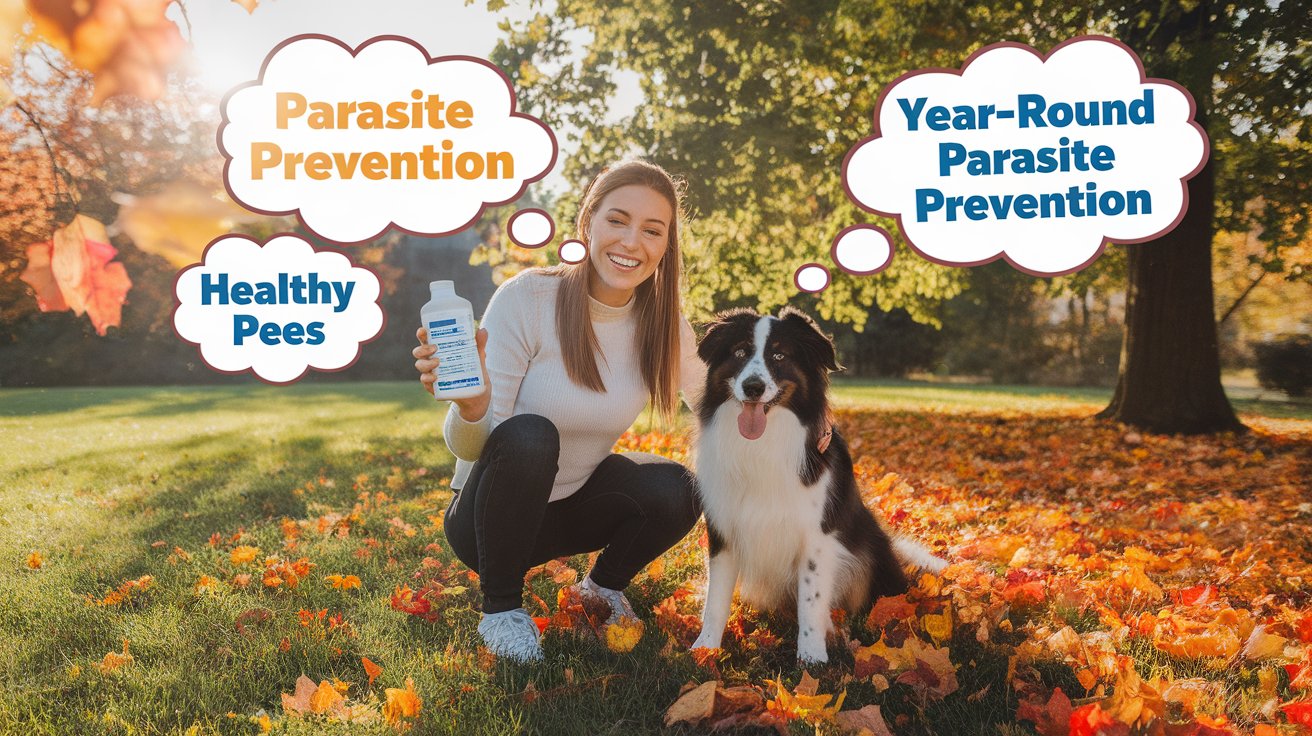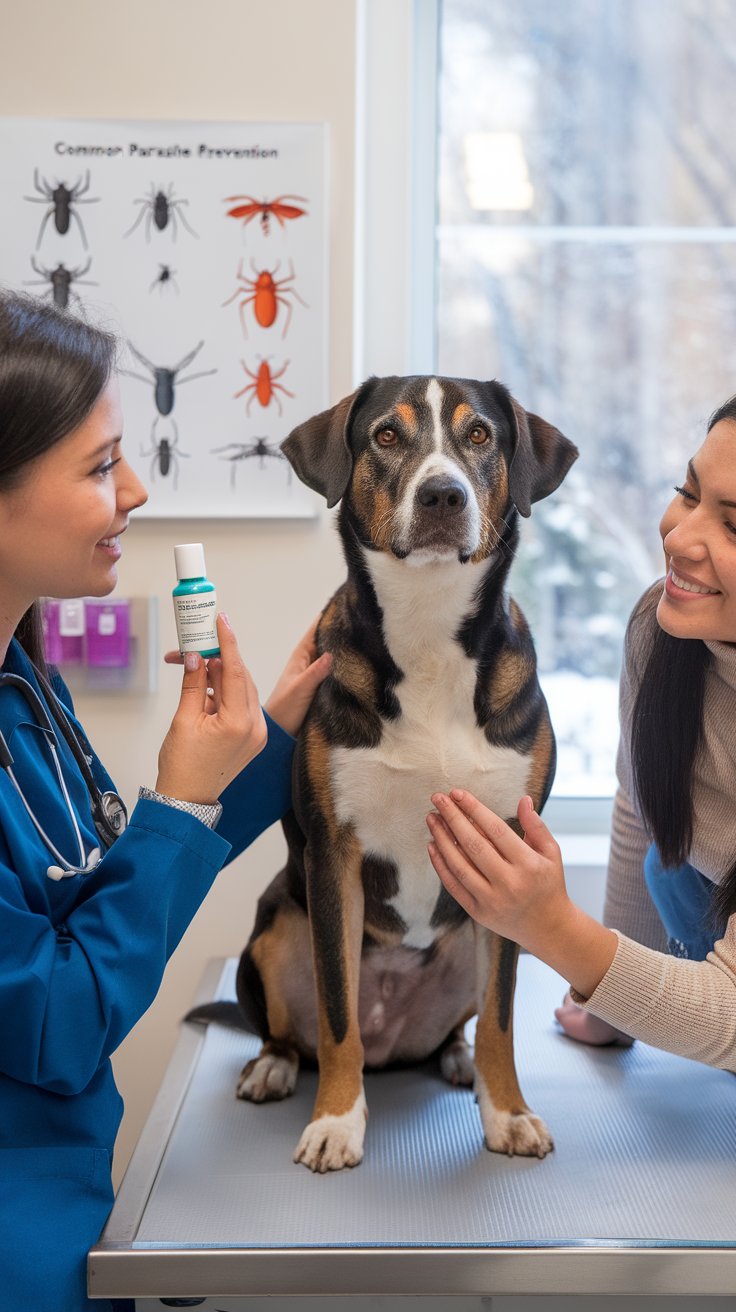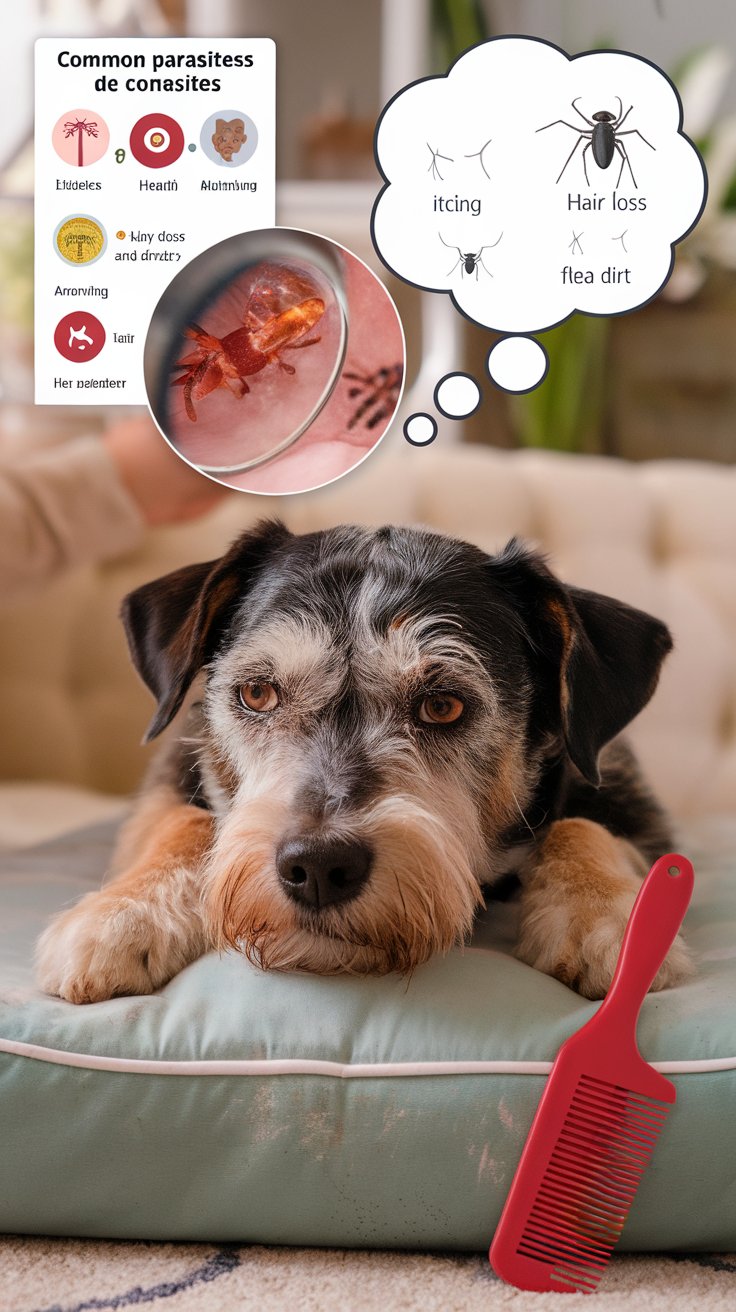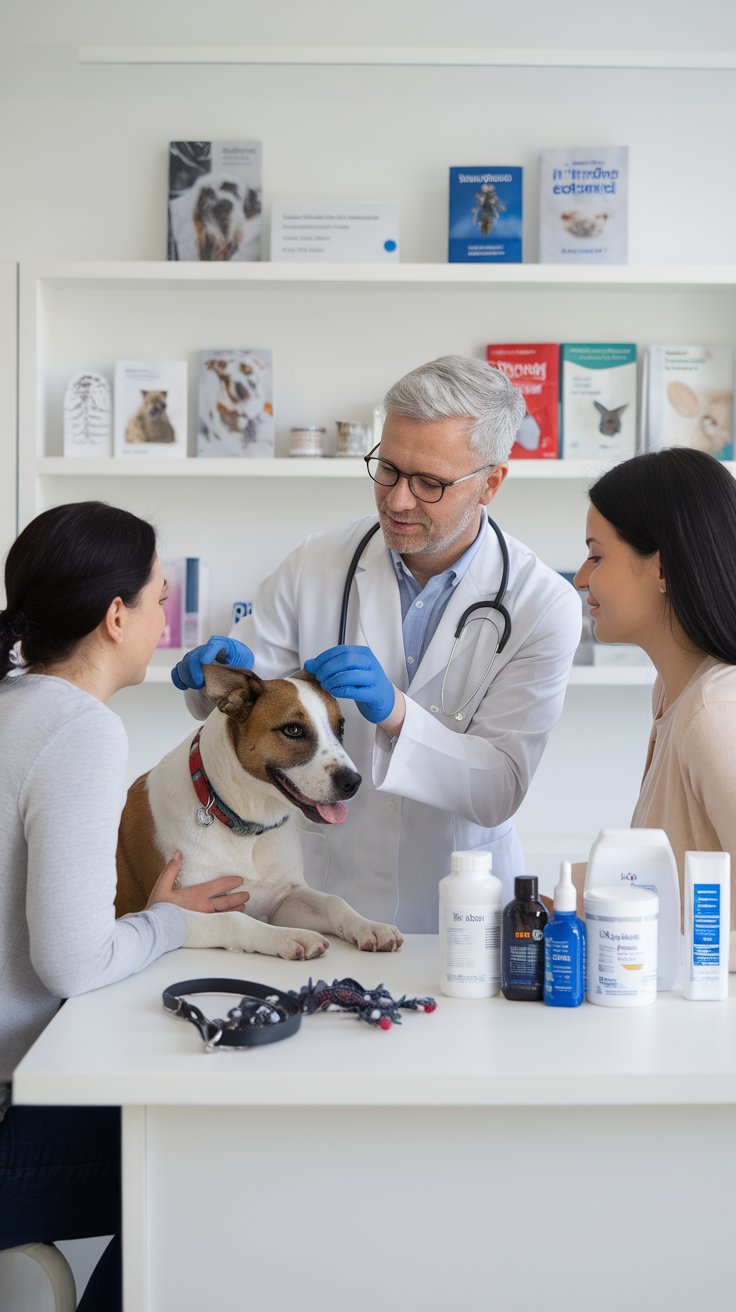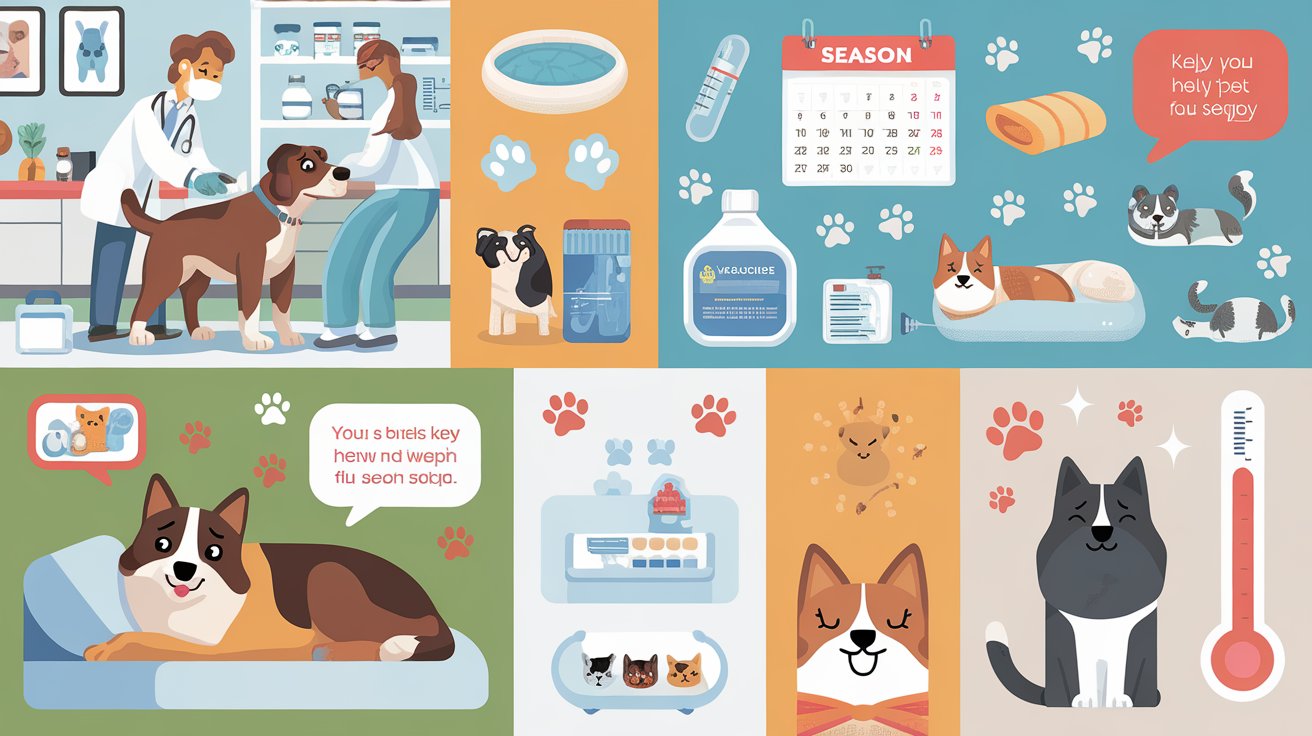Introduction
Parasites such as fleas, ticks, and intestinal worms pose significant health threats to pets throughout the year. Many pet owners underestimate the risks, especially during colder months when parasite activity seems less obvious. However, parasites can thrive in indoor environments and wooded areas, making year-round prevention a critical part of pet care. Understanding the risks and taking proactive steps ensures your furry companion remains safe and healthy.
By consulting veterinarians and implementing consistent preventive measures, pet parents can effectively reduce the risk of infestations and associated health complications like Lyme disease or anemia. This article provides insights into the importance of comprehensive parasite prevention, practical steps to protect your pet, and the role of veterinary guidance in maintaining your pet’s well-being. Together, these strategies ensure your pet enjoys a healthier, happier life all year long.
Key Takeaways
- Year-round parasite prevention is vital to protect pets from fleas, ticks, and intestinal worms.
- Parasites pose risks beyond seasonal boundaries, thriving indoors and in wooded areas.
- Veterinary guidance ensures tailored, effective prevention strategies for pets.
- Regular grooming, clean environments, and observation help reduce parasite risks.
- Consistent preventive measures protect pets from health issues like Lyme disease and anemia.
- A comprehensive approach to parasite prevention enhances the well-being of pets and their households.
Year-Round Parasite Prevention: Protecting Your Pet’s Health
Parasites like fleas, ticks, and heartworms pose significant risks to pets all year long. Despite common misconceptions, these pests don’t disappear in colder months. Fleas can infest indoor environments, while ticks remain active in certain regions throughout winter. A consistent, year-round approach is essential to safeguard pets. Veterinary-recommended treatments, regular grooming, and clean living spaces reduce the risk of infestations. Effective prevention protects not only your pet but also the household from potential health issues caused by parasites, including Lyme disease and anemia. By understanding the importance of comprehensive parasite control, pet owners can ensure their furry companions enjoy a healthier, happier life.
Why Year-Round Parasite Prevention Is Essential
Parasites such as fleas and ticks can thrive indoors, even during colder months, making consistent preventive measures crucial. These pests can cause serious health issues, from anemia to Lyme disease, if left unchecked. Veterinary-approved treatments offer a reliable solution, ensuring comprehensive protection for your pet regardless of the season. Regular grooming and environmental hygiene further minimize risks. Understanding the year-round nature of parasite threats helps pet parents maintain effective prevention strategies.
Common Misconceptions About Seasonal Parasite Risks
Many pet owners believe parasite risks decrease in winter, but this isn’t always true. Fleas can survive indoors, and ticks may remain active in milder climates. Misjudging these threats can leave pets vulnerable to infestations. It’s important to recognize that prevention should never be seasonal. Veterinary advice and proven treatments address parasite risks effectively, no matter the time of year.
Daily Practices to Minimize Parasite Risks
1. Regular Grooming Sessions
Brushing and bathing your pet frequently helps remove fleas, ticks, and other parasites before they become a problem. Pay extra attention to areas like behind the ears, under the legs, and along the tail.
2. Clean Pet Bedding Weekly
Parasites like fleas often hide in bedding. Washing your pet’s bedding with hot water and drying it thoroughly helps eliminate eggs and larvae.
3. Inspect Your Pet After Outdoor Activities
Check for ticks or flea dirt after walks, especially if your pet has been in grassy or wooded areas. Promptly removing any parasites found minimizes the chance of disease transmission.
4. Vacuum Frequently
Parasites can lay eggs in carpets and furniture. Regular vacuuming of areas where your pet spends time helps to break the parasite life cycle.
5. Keep Outdoor Areas Maintained
Trim grass and remove leaf piles where parasites like ticks can hide. A well-maintained yard reduces the likelihood of parasites hitching a ride on your pet.
6. Follow a Consistent Medication Schedule
Using veterinarian-approved preventives as directed ensures your pet stays protected. Set reminders to never miss a dose.
Understanding the Impact of Parasites on Pets and Their Risks
Parasites cause more than just discomfort—they can lead to serious health issues for pets. External parasites like fleas and ticks transmit diseases such as Lyme disease and Rocky Mountain spotted fever, while intestinal parasites, including roundworms and hookworms, can cause malnutrition and anemia. Some parasites even pose zoonotic risks, affecting human health. Symptoms like itching, hair loss, or changes in stool can indicate an infestation. Recognizing these signs early and taking prompt action helps prevent long-term health complications. Staying informed about the risks associated with various parasites equips pet owners to respond effectively.
Health Risks Linked to Common Parasites
Parasites like fleas, ticks, and intestinal worms can cause severe discomfort and lead to life-threatening conditions. Flea infestations result in itching and hair loss, while ticks transmit diseases such as Lyme disease. Intestinal parasites, including roundworms, can cause anemia and malnutrition. Recognizing these risks empowers pet owners to take timely preventive measures, ensuring their pets’ health and well-being.
Identifying Early Signs of Parasite Infestations
Itching, lethargy, changes in stool, and hair loss are some of the symptoms of parasite infestations. Detecting these signs early allows for prompt treatment, reducing the likelihood of severe health complications. Regular check-ups with a veterinarian and periodic stool testing can help identify and address infestations before they escalate.
Case Study: Preventing Parasite Infestations Through Year-Round Care
Emily, a pet parent from a suburban neighborhood, adopted a rescue dog named Max. Despite using preventive treatments during the warmer months, Max began showing signs of discomfort in winter, including excessive itching and hair loss. Emily initially believed fleas and ticks were not a concern during colder months, but a visit to her veterinarian revealed otherwise.
The veterinarian identified a flea infestation that had likely originated indoors. Max was treated with a flea preventive, and Emily received guidance on maintaining year-round care. She implemented regular grooming, started using a monthly preventive medication, and cleaned Max’s bedding weekly. Additionally, she vacuumed carpets and furniture to eliminate any lingering eggs or larvae.
The Role of Veterinarian Guidance in Preventive Care
Veterinarians are key partners in maintaining your pet’s health. They offer tailored advice based on your pet’s age, lifestyle, and specific health needs. From recommending effective preventives to conducting routine fecal tests, veterinarians provide the expertise needed to address parasite-related concerns. They can identify the best treatments for fleas, ticks, and intestinal parasites, ensuring your pet receives safe and effective care. Regular check-ups not only help in early detection but also provide pet owners with the confidence to manage risks effectively. A veterinarian’s role goes beyond treatment—it’s about empowering pet parents to make informed decisions.
How Veterinarians Tailor Prevention Plans
Veterinarians consider your pet’s breed, size, age, and lifestyle when recommending parasite prevention strategies. They can suggest specific products, such as oral medications or flea collars, that suit your pet’s needs. This tailored approach ensures effective and safe parasite control, helping pet owners navigate the complexities of prevention.
The Importance of Regular Veterinary Check-Ups
Routine visits to the veterinarian are vital for monitoring your pet’s health and updating preventive measures. These check-ups provide an opportunity to detect early signs of infestations and discuss any concerns. By building a strong relationship with your vet, you can stay ahead of potential parasite threats and maintain your pet’s well-being.
“An ounce of prevention is worth a pound of cure, especially when it comes to protecting your pets from parasites.” — Dr. Karen Becker, Integrative Veterinarian
Practical Steps to Keep Your Pet Parasite-Free
Keeping your pet parasite-free requires consistent effort and attention to detail. Start by using veterinarian-approved preventives and maintaining a clean environment. Regularly wash your pet’s bedding and vacuum areas where they spend time. Inspect your pet’s coat after outdoor activities, especially in wooded or grassy areas where ticks are common. Stay vigilant for symptoms of infestation, such as itchiness, hair loss, or lethargy. Taking these practical steps minimizes health risks and ensures a higher quality of life for your furry companion. Prevention may require effort, but it’s worth it for your pet’s well-being.
Daily Habits to Reduce Parasite Risks
Simple practices like regular grooming, cleaning your pet’s bedding, and inspecting their coat after outdoor activities significantly reduce parasite risks. These habits create a clean, parasite-resistant environment that benefits both your pet and your household.
Maximizing the Effectiveness of Preventive Treatments
Following your veterinarian’s advice and maintaining a consistent schedule for parasite preventives is crucial. Skipping doses or improper application can compromise effectiveness, leaving pets exposed. Adhering to treatment plans ensures your furry companion stays protected from infestations.
Conclusion
Year-round parasite prevention is an essential responsibility for pet owners to ensure the health and safety of their furry companions. Parasites like fleas, ticks, and intestinal worms pose risks that extend beyond seasonal boundaries, affecting both pets and their owners. By maintaining a consistent preventive routine and addressing risks proactively, you can significantly reduce the likelihood of infestations and associated health complications, such as Lyme disease and anemia.
Collaboration with veterinarians is key to successful prevention. Their expertise ensures that your pet receives tailored care and effective treatments. Combining veterinary guidance with regular grooming, clean living environments, and diligent observation helps to create a comprehensive approach to parasite prevention. Protecting your pet from parasites not only safeguards their well-being but also enhances the quality of life for the entire household.

